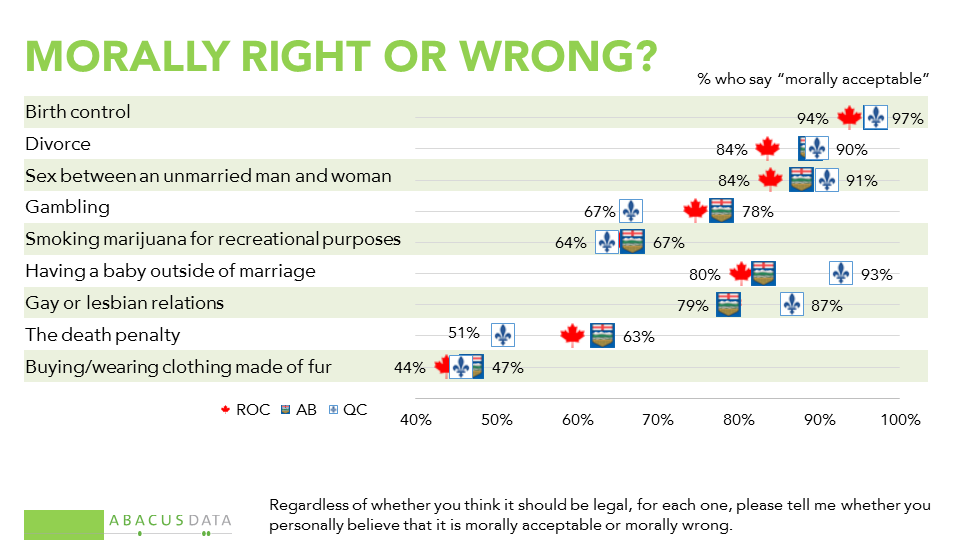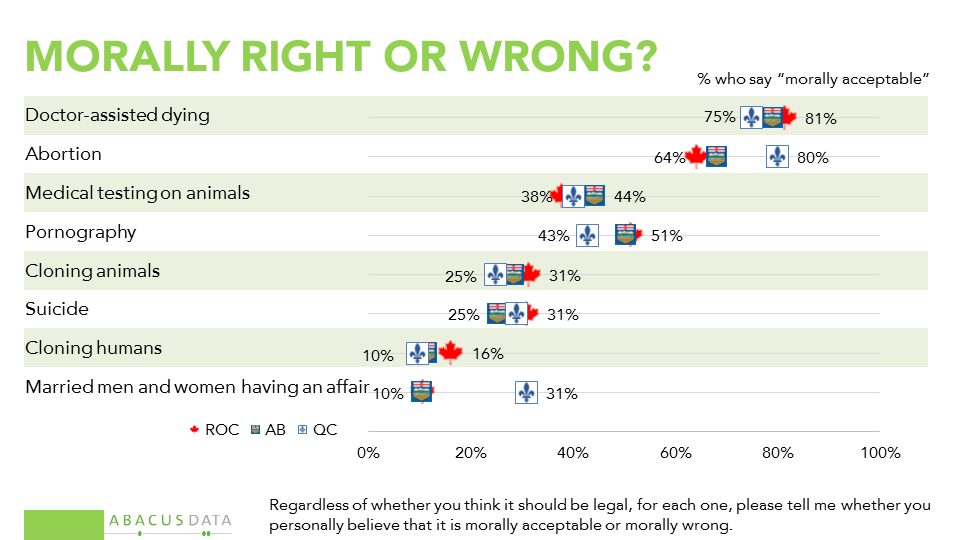HOW BIG ARE CANADIAN REGIONAL DIFFERENCES ON QUESTIONS OF MORALITY?
July 10, 2016
Our latest nationwide survey included questions on what people consider to be morally acceptable or morally wrong.
See our earlier releases here and here.
Here’s a look at regional differences, particularly looking at how Alberta, often understood to be the most conservative province, and Quebec, often seen as at the other end of the spectrum. Here’s what we find:
Albertans and Quebecers largely agree (within five points of each other) on the morality of:
• Birth control, divorce, unmarried sex
• Recreational marijuana use
• Doctor assisted dying, and suicide
• Medical testing on animals, fur clothing
• Cloning animals and humans
Albertans are more likely than Quebecers to say the following are morally acceptable:
• Gambling (78% vs 67%)
• Pornography (50% vs 43%)
• Death penalty (63% vs 51%)
Quebecers are more likely than Albertans to say the following are morally acceptable:
• Abortion (80% vs 68%)
• Having children out of wedlock (93% vs 83%)
• Gay and lesbian relations (87% vs 79%)
• Married men and women having an affair (31% vs 10%)
THE UPSHOT
Bruce Anderson: notably, Quebecers and Albertans are more similar than different on many of these items, and neither region is that far afield of the views of the rest of the country. Still, Quebecers do seem more libertarian/secular/progressive on abortion, and sexual orientation on behaviour. Albertans are more likely to find gambling, pornography and the death penalty morally acceptable.
Methodology
Our survey was conducted online with 1,500 Canadians aged 18 and over from June 14 to 16, 2016. A random sample of panelists was invited to complete the survey from a large representative panel of over 500,000 Canadians.
The Marketing Research and Intelligence Association policy limits statements about margins of sampling error for most online surveys.
The margin of error for a comparable probability-based random sample of 1,500 is +/- 2.6%, 19 times out of 20.
The data were weighted according to census data to ensure that the sample matched Canada’s population according to age, gender, educational attainment, and region. Totals may not add up to 100 due to rounding.
Abacus Data Inc.
We offer global research capacity with a strong focus on customer service, attention to detail and value added insight. Our team combines the experience of our Chairman Bruce Anderson, one of Canada’s leading research executives for two decades, with the energy, creativity and research expertise of CEO David Coletto, PhD.






